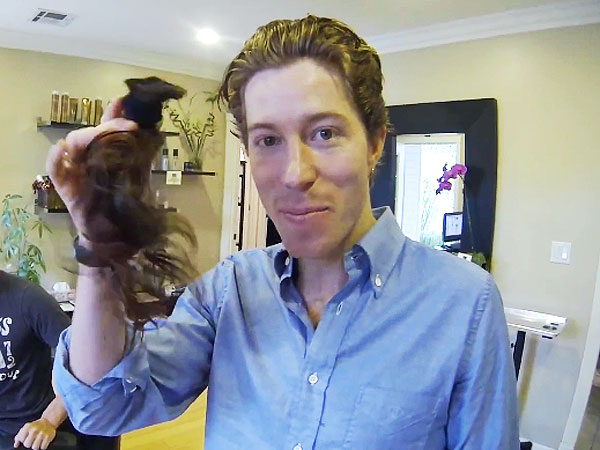Shaun White, snowboarder extraordinaire, was being profiled in the New York Times, probably to help sell his new image (shorn of his trademark locks).

There were three points I found interesting:
(1) Along with the triple cork, White has been trying to learn life lessons
like: If you’re nice to somebody, they tell three people; if you’re a
jerk, they tell 10.
That is pretty much self-explanatory.
That is pretty much self-explanatory.
(2) Still, White says, some have asked why he doesn’t just drop slopestyle,
which has been dogging him to no end, and focus on the halfpipe and his
business life, which he clearly loves. But White sees danger in not
pushing himself hard. “I set out to do both events, and I don’t want to
change my focus. It’s like you’re on a diet, and it’s no carbs, and then
you eat a carb. It’s slippery slope, just half a sandwich. You lower
your expectation, and there you go.”
White spends a fair amount of time these days assessing himself. His current appraisal: “Maybe things aren’t perfect, but they’re a lot better than they were before.”
Complacency is when bad things happen. I find that there really is no state of static; there is only moving forwards, or falling back. After triumphantly conquering a flaw, unless the next one is tackled, the past will encroach, bit by bit, then lunge while the prey is blissfully unaware.
I'm not talking about aiming for perfection. If you shoot for perfection, you will never, ever hit the target. Just be real about what part of you needs tinkering, and sight for better. That target has a chance of getting hit.
White spends a fair amount of time these days assessing himself. His current appraisal: “Maybe things aren’t perfect, but they’re a lot better than they were before.”
Complacency is when bad things happen. I find that there really is no state of static; there is only moving forwards, or falling back. After triumphantly conquering a flaw, unless the next one is tackled, the past will encroach, bit by bit, then lunge while the prey is blissfully unaware.
(3) Part of Yokomoto’s job is to keep White on track while at the
same time reminding him that everybody has hard times. “He’ll allude to
some high-profile person and say, ‘I just got off the phone, and they
have bigger problems than you do, trust me,’ ” White told me. He finds
this therapeutic. “It’s like when you see a couple, and you’re like: Why
are they so happy? Why am I not? It’s funny. It’s nice to learn those
things now.”
That mentality shouldn't be encouraged. I would say it is less about hoping that everyone is more miserable than you, but more the understanding that everyone has their own burdens, some heavier, some lighter, and we are all the same in that.
I don't want to be the person wallowing in schadenfreude. But rather than putting up a wall between yourself and the world—that they have it easy while you have it hard—that's divisive, not conducive to achdus.
The trick? Brené Brown, baby. Practice gratitude; it is impossible to have joy without it.

That mentality shouldn't be encouraged. I would say it is less about hoping that everyone is more miserable than you, but more the understanding that everyone has their own burdens, some heavier, some lighter, and we are all the same in that.
I don't want to be the person wallowing in schadenfreude. But rather than putting up a wall between yourself and the world—that they have it easy while you have it hard—that's divisive, not conducive to achdus.
The trick? Brené Brown, baby. Practice gratitude; it is impossible to have joy without it.

2 comments:
Agreed. My great-grandmother, who lived until nearly 104 told us that her secret to a long life is gratitude. The best attitude.
That's the only way to reach 104!
Post a Comment